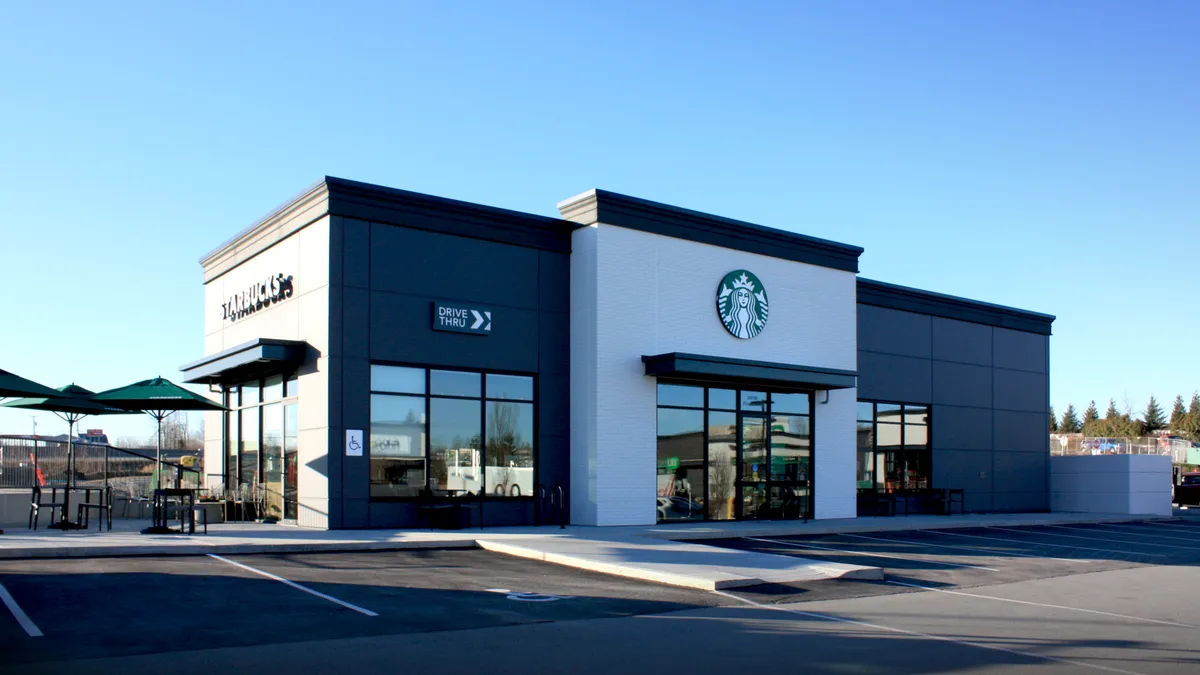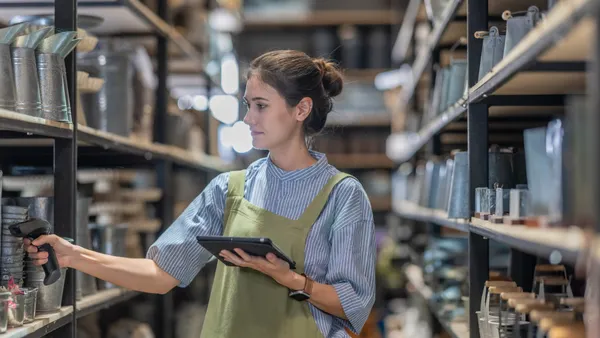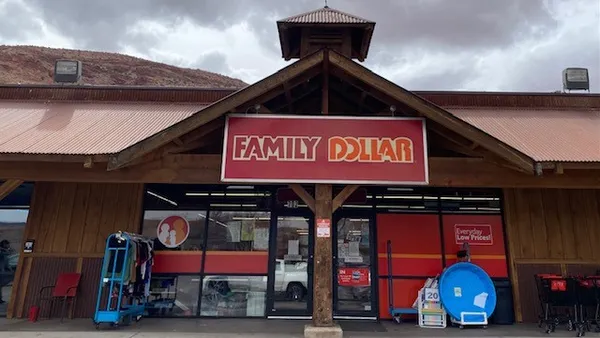Dive Brief:
- Some Starbucks supply chain partners have "struggled" getting deliveries from distribution centers to stores due to labor shortages, the coffee chain's CEO Kevin Johnson said on a Q2 earnings call Tuesday.
- Starbucks is working with its partners on labor-shortage issues, but said it is not currently a widespread problem. "I do anticipate we'll do a little bit more to invest and help our supply chain partners, whether it's staff that they need in manufacturing or staffing they need for distribution and transportation," Johnson said.
- The distribution issue comes after Starbucks announced plans last year to increase store throughput by "rapidly transforming" store layouts to add Starbucks Pickup and drive-thrus to meet "shifting consumer behaviors."
Dive Insight:
The world's largest coffee chain is on a mission to make the ordering and pickup process "effortless." But if distribution to stores lags, the process is all but easy.
Driver and labor shortages affecting product deliveries have been a persistent issue for supply chains over the last year, impacting the partners that companies rely on for their distribution services. To ensure products got to their destinations on time, General Mills and Lamb Weston incurred higher transportation costs after pivoting to spot trucking due to constrained capacity.
For Starbucks, the plan is to assist partners where it can and optimize operations at stores once the goods arrive.
The company plans to use "new store formats" in densely populated metro areas, suburban and rural markets by setting up pickup options and drive-thrus, as part of its Americas Trade Area Transformation initiative, it said on the earnings call. The coffee-maker has also added "handheld order devices" and updated its operational standards to improve drive-thru throughput.
Last year, the company also invested in standing up a risk management system to provide more visibility into supply chain disruptions by using real-time alerts and collecting information from logistics partners, suppliers and its store locations.
"Disruption is inevitable in a supply chain and therefore you have to find ways to embrace it," Stephanie Eberts, a supply chain architecture program manager at Starbucks, said during a February webinar.















